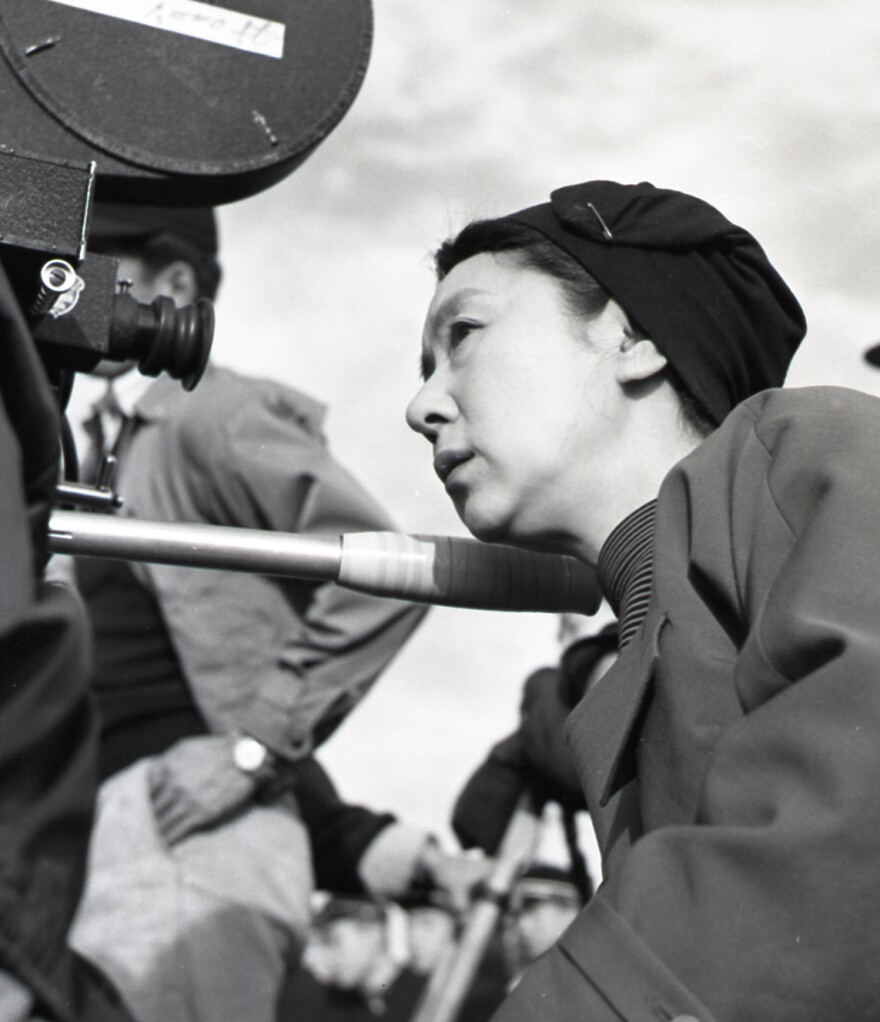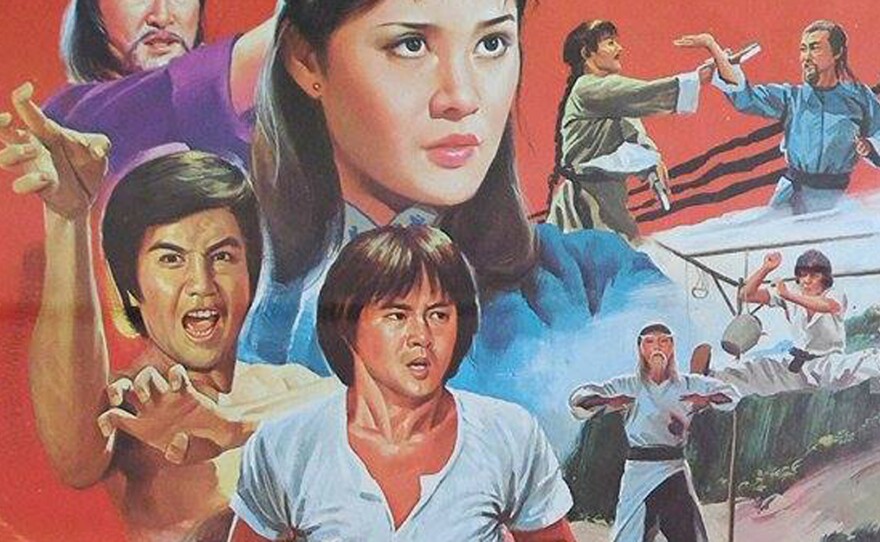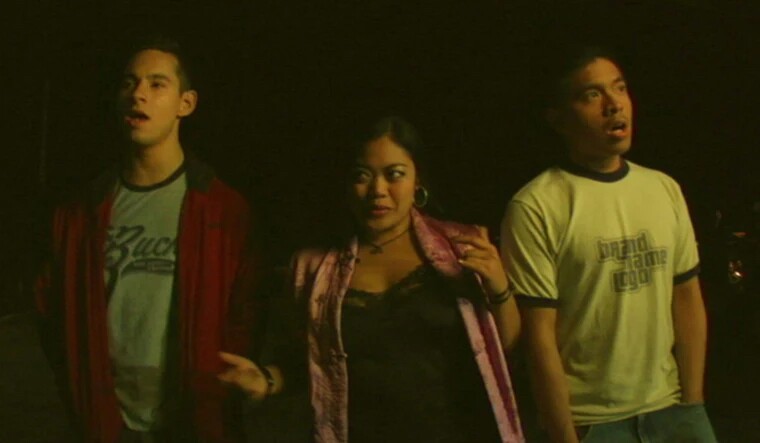Pacific Arts Movement's 11th annual San Diego Asian Film Festival Spring Showcase kicks off on Thursday. It serves up eight days of what it calls "fresh Asian cinema from then and now." There will be more than two dozen films from around the globe from animation to documentary, science fiction to lush melodrama.
Discovering Kinuyo Tanaka
PacArts' artistic director Brian Hu always manages to surprise me with something amazing. This year's back in-person Spring Showcase is no exception. The highlight for me is a quartet of films by a director I was completely unaware of, Kinuyo Tanaka, an actress who turned to directing.

"She was in like 250 films. She was one of the biggest actresses in Japan from the silent period all the way to the 1970s," Hu said. "But there was a little blip in her career in the 1950s and 60s, where she said, 'Look, I want to direct.' And everyone looked around and said, 'wait, really?' And there was a lot of resistance."
She only directed six films but the four showcased this weekend display exquisite skill behind the camera and delicate compassion for female characters seen too rarely on the screen.
"At least one of them is a stone-cold masterpiece," Hu insisted. "When I watched it, I thought, how do we ever think about 1950s Japanese cinema without a film like 'Forever a Woman,' which is not just a high level of cinematic craft, but also one of the few films I've ever seen from this era about breast cancer and not from a perspective of victimhood, but of like, if I get breast cancer, how does that affect my family? How does that affect my sexual desires? How do I reinvent myself in a scenario like this? And it's still very powerful to watch."
Tanaka's films rival the lush, elegant melodrama of Hollywood women's pictures by directors such as Douglas Sirk and Max Ophüls. So do yourself a favor and check out this quartet of films for the Sunday Spotlight.

Mystery Kung Fu Theater
But what I also love about Hu's programming is that he can showcase Tanaka's elegant gems on Sunday, and then on Monday treat us to Mystery Kung Fu Theater, which features what some would consider low-brow chop-socky cinema. I happen to think these films display some breathtaking skill in delivering action plus they are just so much fun to watch when you are with an audience and can hear an entire theater gasp in awe at some of the fight choreography.
"Asian cinema internationally is built on the reputation of martial arts films. For better or worse, we associate Asian cinema with martial arts films. Before there was an Asian film festival, the martial arts films were kind of the Asian film festival, and you would see them at Chinatown movie theaters or on TV. So we're kind of paying homage to the ways in which Asian cinema became global to begin with," Hu said. "There's something about these films that are themselves a legitimate form of expression and artistry. We have to think about the ways in which these filmmakers, choreographers, stunt people who were way ahead of the game, that the entire world just had their jaws dropped when they saw the kind of intricate martial arts choreography that was on display in these films."
As the program title implies, the films are a mystery and you just have to trust Hu to pick something that kicks ass. And so far, he has not disappointed.

Other program highlights
"Anita" is the opening night film on Thursday. Louise Wong plays Cantopop singer and Hong Kong superstar Anita Mui in this new biopic.
Hu said the film had a certain nostalgic appeal for him.
"I'm just thinking about this now because this idea of Hong Kong cinema and this golden age of Hong Kong, it feels like it's gone, right? Like Hong Kong cinema isn't what it used to be, especially now that it's been so integrated with mainland China," Hu said. "So this idea of a star that's so quintessentially Hong Kong, who sings in Cantonese and yet is still popular everywhere, you can understand why people are nostalgic for a figure like her. I love this movie because this allows me to relive certain moments of that time and with Anita Mui who, not really a spoiler, but she passes away at the end of the film, and we can say goodbye not just to Mui, but to a certain version of Hong Kong."
On Saturday, Spring Showcase takes a bit of a detour from film to highlight a book. "RISE: A Pop History of Asian America from the Nineties to Now" will be a part of the Showcase's first book event live panel. Authors Phil Yu, Jeff Yang, and Philip Wang will answer questions and sign books, which will be available for purchase from the local Asian American-owned bookseller Comickaze Comics.
For closing night, PacArts will show "Free Chol Soo Lee," a documentary that screened earlier this year in San Diego at the Sundance Satellite venue of Digital Gym Cinema. The film looks to Chol Soo Lee, a Korean immigrant whose wrongful imprisonment for murder spurred an Asian American-activist movement.

And streaming on the Criterion Channel
And if you can't make the Spring Showcase, here's another option for you. Hu has curated a collection of films for the Criterion Channel called "Asian American Filmmaking 2000-2009."
"These are the films that I watched at places like the San Diego Asian Film Festival during that decade and when I was a journalist covering the Asian American film scene in California," Hu said. "These films are hard to find now. They're less than 15 years old, and yet they're as difficult to find as like a silent movie. Part of the same impetus that makes me want to show Kinuyo Tanaka films that we don't know about is the same one reason I want to highlight Asian American cinema that is not even that old yet."
PacArts' 11th annual San Diego Asian Film Festival Spring Showcase runs April 21 through 28 at the UltraStar Cinemas Mission Valley.


















